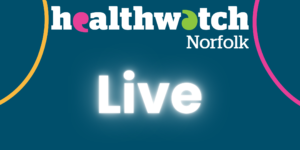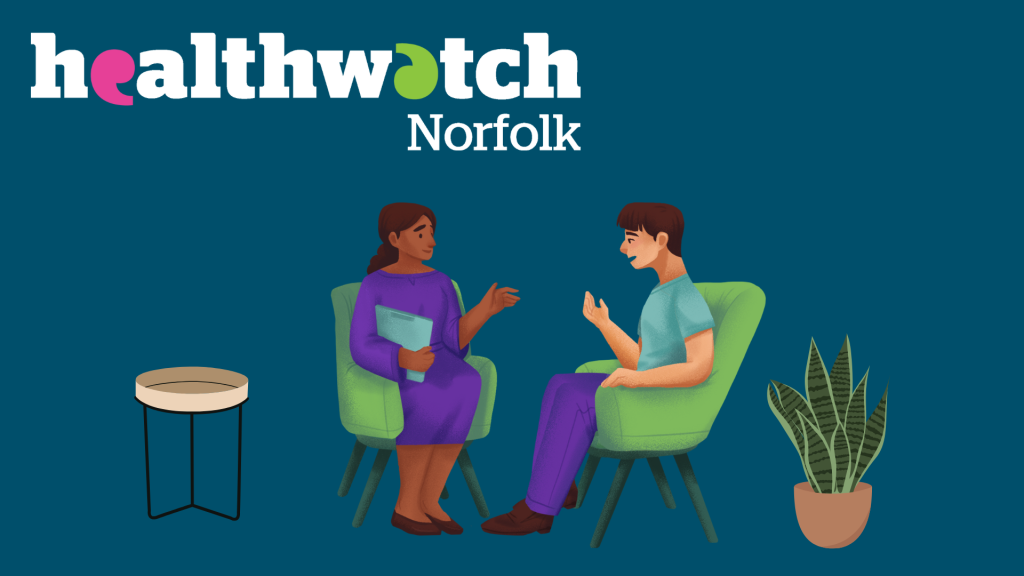
Do the panel see the value of the 3rd sector in being able to provide services on behalf of the statutory sector?
Absolutely. We need to recognise that they have the skills, approach and ability to deliver a lot of interventions and services traditionally provided by statutory providers. We must commit resources over a longer time frame that means the 3rd sector can plan and have some certainty on providing these services. They need to be built into our pathways, so they are not seen as an add on, or nice to have, but crucial.
The Nice guideline for Motor neurone disease, assessment and management states that the core multidisciplinary team should include a specialist nurse. Whilst caring for my late husband, who died from MND, we had the support of a wonderful neurological nurse specialist – her advice saved him from unnecessary hospital visits and possibly admissions. This provision is still available in North, South, East and West Norfolk, people speak very highly of the support they receive. However, there is a gap in Norwich which is felt by people currently living with MND who I meet in my role as a volunteer with the Norfolk, Norwich and Waveney Branch of the MND Association. Are there plans to address this and provide a neurological nurse specialist who can visit people living with MND at their home in the Norwich area?
Your experience brings to life one of the objectives we need to achieve with the new Integrated Care structures. This is an example, where we have historic differences in service provision, and we need to address that together. Within the Trust, we are addressing these issues, and working closely with our partners and the ICB.
Dentistry is becoming increasingly all most impossible to access on the national health across Norfolk? Will the system consider reimbursing pregnant and nursing mothers who are entitled to free NHS dental care in the event that they have to pay for private treatment?
Unfortunately we are not able to do this and NHS England is currently responsible for commissioning dental services. Anyone in dental pain or needing urgent treatment should call NHS111 for advice and support, and clinical triage where appropriate before being directed to an urgent dental care provider. We have new dental practices opening in Lowestoft, Norwich, Kings Lynn and soon one other area, which we will announce once the contractual discussions have concluded. These have been commissioned by NHS England.
What plans have the ICB for ensuring that there is adequate dental provision moving forwards when they are responsible for the commissioning of dental services?
We are working closely with our colleagues in NHS England during this transition period on the implementation of a regional dental strategy. The issues we face in dental care will not be fixed overnight, there is a severe workforce issue and a dissatisfaction with the national contract. Practices have been unable to recruit new dentists to replace those leaving, which means they are unable to fulfil their NHS contract. This has led to some practices handing back their contracts to NHS England. We are engaging with the Norfolk Local Dental Committee and Health Education England about how we can best support our dentists and dental practices to try and retain them in the NHS.
What plans are there for GP surgeries to work more flexibly to match the population e.g. opening during weekends/evenings? Why do most surgeries require everybody to call at the same time to make appointments? What would be the drawback of people calling any time in the day?
From 1 October, all practices working in primary care networks will provide enhanced access in the evenings and on Saturdays. This may be offered out of a hub facility so you may be asked to travel to another site and see a health professional from another practice. It is not necessary to call first thing in the morning for test results or for routine appointments you may wish to book in advance, in fact calling later in the day should mean your call is answered more quickly.
I’m a stroke survivor and want to ask why treatment for stroke survivors stops after 2 years?
The NICE guidelines say that every patient will be reviewed annually after stroke, however it does not specify that this is necessarily a specialist who does this – this will depend on the patients’ needs. Dr Mark Lim or one of his team would be very happy to talk to any patient who feels his or her needs or not being met (either through Healthwatch or individually) and discuss this with the Stroke Programme Board.


